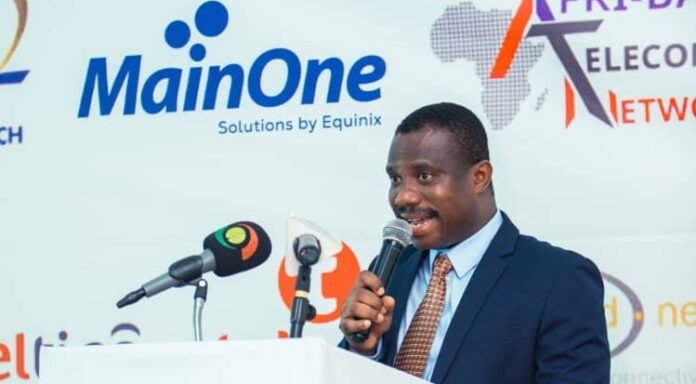Ghana is sharpening its long-term digital strategy with an emphasis on robust infrastructure, stronger policy alignment, and the elevation of the Ghana Internet Exchange (GIX) as a national and regional digital asset. This direction emerged at the GISPA Internet Conference 2025, held at the Kofi Annan Centre of Excellence under the theme “Ghana’s Digital Future: Policy, Infrastructure, and the Strategic Role of GIX.”
Organised by the Ghana Internet Service Providers Association (GISPA) from 25th to 26th November 2025, the conference sought to strengthen local ISP technical capacity, explore policy pathways shaping Ghana’s digital transformation, underline infrastructure as the backbone of the digital economy, position GIX for national and cross-border impact, and deepen collaboration among public and private digital stakeholders.

With internet penetration now exceeding 70% and annual data consumption rising by over 30%, Ghana’s digital ecosystem is expanding rapidly, but experts caution that progress hinges on improved infrastructure resilience, better interconnectivity, and enhanced traffic localisation.
Speaking at the conference, the GISPA President, Michael Komla Kumah Nfodzo, reaffirmed the industry’s readiness to spearhead the next evolution of Ghana’s connectivity landscape.
“Ghana’s digital future depends on the strength, resilience, and innovation of the infrastructure we build today. As service providers, we understand that our work is not just about delivering connectivity, it’s about enabling national development, empowering businesses, and supporting the millions of Ghanaians who rely on the internet for work, education, health, and social participation.”
He highlighted GISPA’s engagement with government on strengthening fibre infrastructure and improving interconnectivity for critical institutions, noting that collaboration will be essential to achieving national digital goals.
A major policy development referenced during the conference was the National Communications Authority’s ongoing regulatory modernisation, including the revision of the annual regulatory fee for internet and public data service providers from a flat rate to 0.5% of net revenue.
The reform, aimed at promoting fairness, transparency, and sustainability in the regulatory regime—was widely acknowledged by participants as a step toward creating an enabling environment that encourages investment and supports industry growth.
In his keynote address read on his behalf, the Minister for Communications, Digital Technology and Innovation, Hon. Sam Nartey George, stressed the centrality of policy and infrastructure to Ghana’s regional digital ambitions.
“The conversations taking place here are critical to the future of Ghana’s digital transformation agenda. As a Ministry, we view the Internet not just as a technological tool but as a national economic enabler, one that determines our competitiveness, our productivity, and our ability to participate meaningfully in the global digital economy.
Government is committed to working closely with GISPA and all partners to address infrastructure gaps, streamline deployment processes, and modernise the regulatory framework that supports connectivity expansion,” he stated.
The Minister emphasised ongoing collaborative efforts to improve interconnection points to GIX, enhance redundancy for financial and public institutions, and advance Ghana’s aspiration to serve as a West African digital hub. He noted that broadening GIX’s reach beyond Accra would reduce latency, improve user experience, cut international transit costs, and retain more digital traffic within the country.
He added that Ghana’s expanding fibre footprint and geographic advantage position the country to exchange internet traffic with neighbouring states, a move that could unlock new commercial opportunities and enhance sub-regional integration.
Panels throughout the conference explored the business case for cross-border connectivity, infrastructure sharing, and the role of local content in reducing dependence on international transit routes. Day 1’s hands-on training sessions also strengthened the technical competence of network engineers, directly supporting the conference’s first objective.








